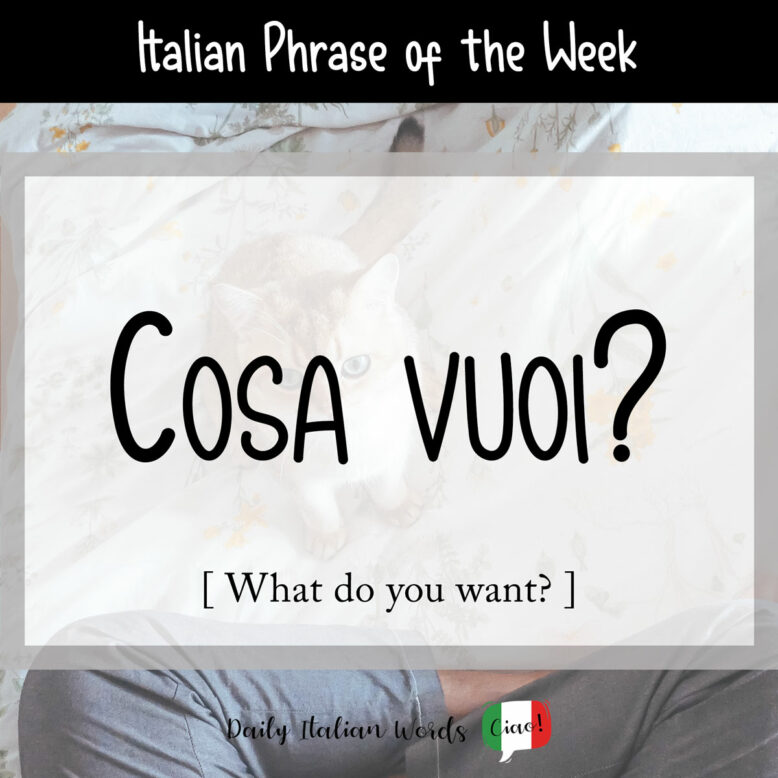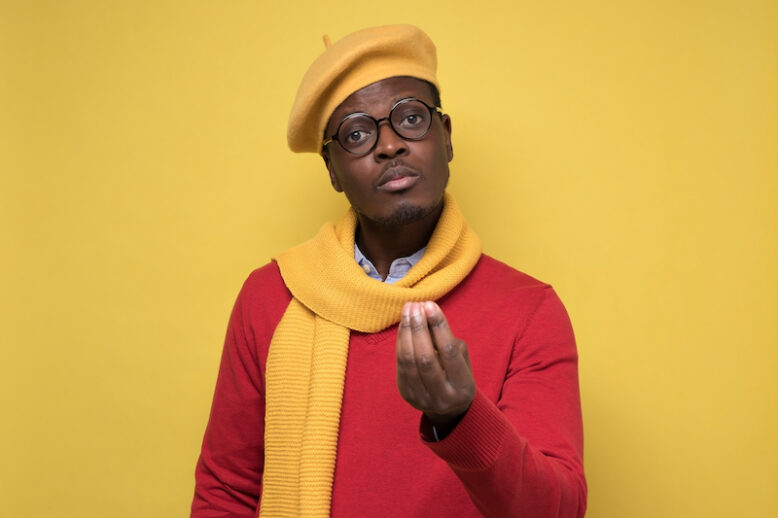If you wish to inquire about someone’s desires or preferences in Italian, you can always turn to the phrase Cosa vuoi? This expression directly translates to “What do you want?” in English and is commonly used in casual or informal settings to seek information about someone’s wishes, needs, or choices.
Cosa vuoi?
What do you want?

Cosa means what in Italian when used as an interrogative pronoun, but it can also mean thing. For example:
Cosa vuoi fare con questa cosa?
What do you want to do with this thing?
In Italian, there are actually three interrogative pronouns that can refer to an unknown thing: cosa, che cosa and che. The use of cosa is more common in Northern Italy (e.g. Milan and Turin) and Sardinia, while che is prevalent in the center-south. Che cosa is the classic literary form, and is universally accepted. In spoken Italian, they are all interchangeable. (Accademia della Crusca)
Cosa vuoi?
Che vuoi?
Che cosa vuoi?
What do you want?
Vuoi is the second person singular of the modal verb volere (to want). You can see the full conjugation of the verb in the present tense below:
io voglio = I want
tu vuoi = you want (informal)
lui vuole = he wants
lei vuole = she wants
Lei vuole = you want (formal)
noi vogliamo = we want
voi volete = you want (plural)
loro vogliono = they want
Note: The phrase Cosa vuoi can come off as rude, much like What do you want? may sound unpleasant in English if delivered with the wrong tone. The context and your familiarity with the person usually help in discerning the intention, but it’s crucial not to assume that cosa vuoi is always polite in Italian.
The notorious Italian hand gesture that often accompanies Cosa vuoi? is often referred to as the “pinched finger” gesture, known in Italian as il gesto del carciofo (literally, the artichoke gesture) or mano a borsa (literally, purse hand). To make this gesture, bring your fingers and thumb together, then shake your hand in front of your face. This gesture is so wide-spread that it has even earned its own emoji, dubbed the Pinched Finger Emoji: 🤌 🤌🏾.

One of singer-songwriter Loredana Bertè’s more recent hits is called Che cosa vuoi da me? which means What do you want from me? You can listen to it on YouTube below!
Heather Broster is a graduate with honours in linguistics from the University of Western Ontario. She is an aspiring polyglot, proficient in English and Italian, as well as Japanese, Welsh, and French to varying degrees of fluency. Originally from Toronto, Heather has resided in various countries, notably Italy for a period of six years. Her primary focus lies in the fields of language acquisition, education, and bilingual instruction.


